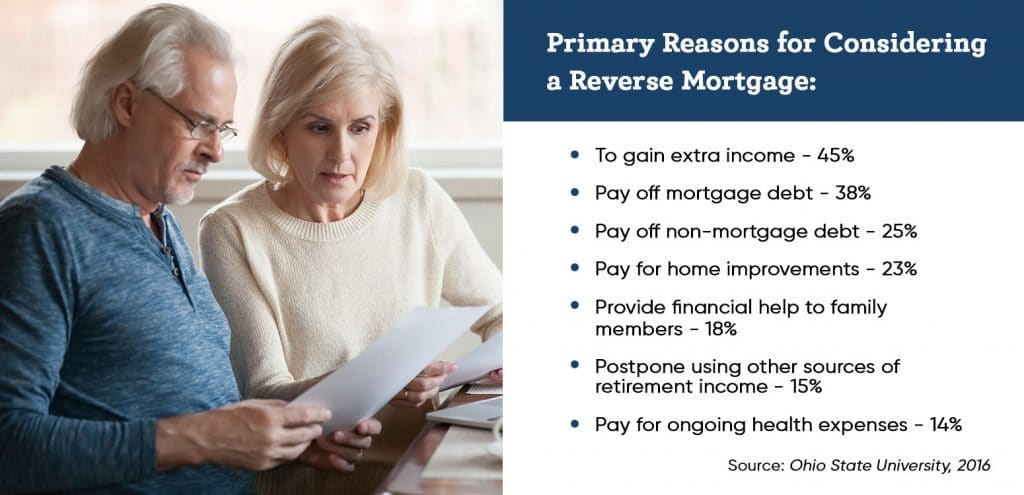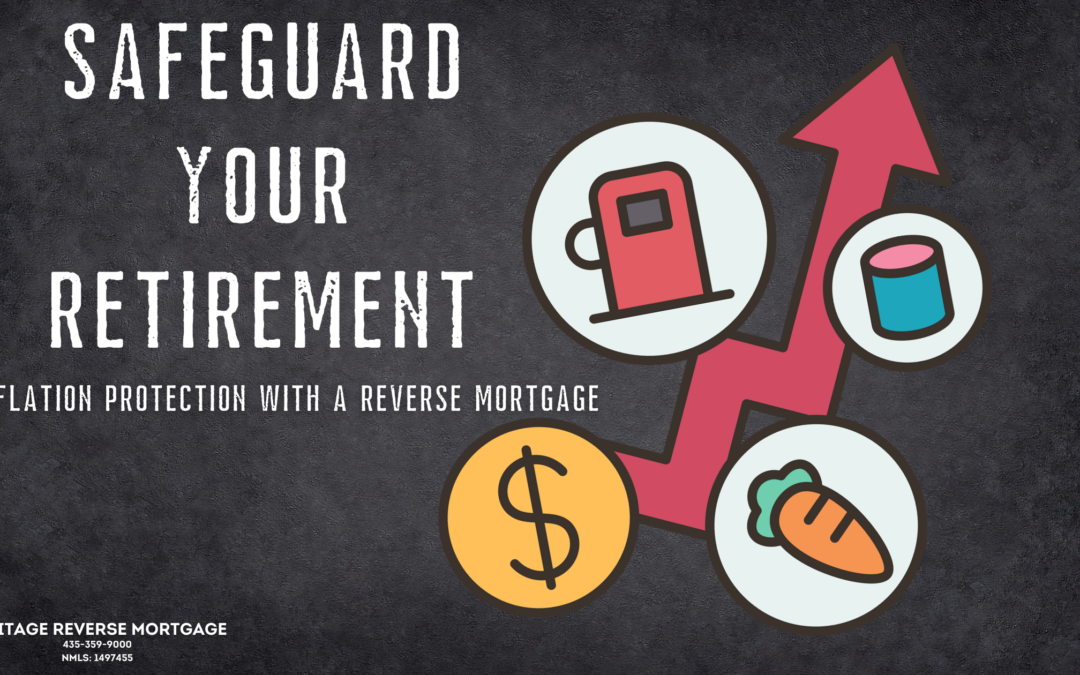Unlock Financial Flexibility: Your Guide to Getting a Reverse Home Mortgage
Comprehending the ins and outs of reverse mortgages is crucial for home owners aged 62 and older looking for economic freedom. As you consider this option, it is important to grasp not just just how it functions but likewise the implications it may have on your economic future.
What Is a Reverse Mortgage?

The fundamental charm of a reverse home mortgage hinges on its prospective to boost monetary versatility during retirement. Property owners can utilize the funds for different purposes, consisting of clinical expenses, home renovations, or daily living costs, hence providing a safety internet during an important phase of life.
It is necessary to comprehend that while a reverse home loan enables for enhanced cash flow, it additionally decreases the equity in the home over time. As rate of interest accumulates on the impressive car loan equilibrium, it is vital for possible debtors to carefully consider their lasting financial plans. Consulting with a monetary advisor or a reverse mortgage expert can give beneficial insights into whether this alternative straightens with a person's financial goals and circumstances.
Eligibility Requirements
Understanding the qualification demands for a reverse mortgage is important for house owners considering this economic alternative. To qualify, applicants have to be at least 62 years old, as this age criterion permits elders to access home equity without month-to-month mortgage settlements. Furthermore, the homeowner needs to inhabit the home as their key dwelling, which can include single-family homes, certain condos, and made homes fulfilling details guidelines.
Equity in the home is another crucial demand; home owners typically need to have a substantial amount of equity, which can be determined with an appraisal. The amount of equity offered will straight influence the reverse home mortgage quantity. Applicants need to show the capability to preserve the home, including covering property taxes, house owners insurance policy, and upkeep prices, making certain the building stays in excellent problem.
Additionally, possible debtors should undergo a monetary analysis to examine their income, credit rating, and general economic situation. This assessment aids lending institutions figure out the candidate's ability to fulfill recurring responsibilities associated with the building. Meeting these demands is vital for safeguarding a reverse home loan and ensuring a smooth monetary transition.
Advantages of Reverse Home Mortgages
Countless benefits make reverse home loans an enticing alternative for seniors looking to boost their economic adaptability. purchase reverse mortgage. One of the main benefits is the capacity to transform home equity over at this website into money without the demand for month-to-month home loan settlements. This attribute permits elders to access funds for various needs, such as medical costs, home renovations, or daily living expenses, thus minimizing monetary stress
Additionally, reverse home mortgages give a security web; seniors can continue to reside in their homes for as lengthy as they satisfy the loan requirements, cultivating stability during retirement. The proceeds from a reverse mortgage can likewise be utilized to postpone Social Safety advantages, possibly causing higher payments later.
Moreover, reverse mortgages are non-recourse financings, suggesting that borrowers will never ever owe greater than the home's value at the time of sale, securing them and their beneficiaries from economic obligation. Lastly, the funds obtained from a reverse mortgage are typically tax-free, including an additional layer of financial relief. In general, these advantages setting reverse mortgages as a useful service for seniors looking for to improve their economic situation while keeping their valued home environment.

Expenses and Costs Entailed
When considering a reverse mortgage, it's vital to know the numerous prices and costs that can affect the total economic photo. Recognizing these costs is essential for making an best site informed decision regarding whether this economic item is right for you.
One of the main costs connected with a reverse home mortgage is the source charge, which can vary by lending institution however normally varies from 0.5% to 2% of the home's assessed value. Additionally, home owners should expect closing prices, which might include title insurance policy, evaluation fees, and credit score record costs, normally totaling up to numerous thousand bucks.
Another substantial expenditure is mortgage insurance premiums (MIP), which secure the lender against losses. This charge is usually 2% of the home's value at closing, with a continuous yearly premium of 0.5% of the remaining funding equilibrium.
Finally, it is necessary to think about recurring expenses, such as building taxes, property owner's insurance, and maintenance, as the debtor stays in charge of these costs. By very carefully assessing these charges and costs, homeowners can better analyze the economic effects of going after a reverse home loan.
Steps to Begin
Getting begun with a reverse home mortgage involves several vital actions that can assist simplify the process and ensure you make informed decisions. First, evaluate your financial situation and establish if a reverse home loan straightens with your long-lasting his explanation goals. This consists of evaluating your home equity, present debts, and the necessity for additional income.
Next, research different lenders and their offerings. Try to find reliable establishments with favorable evaluations, clear fee structures, and affordable rate of interest. It's vital to contrast terms and conditions to find the very best suitable for your demands.
After selecting a loan provider, you'll require to finish a detailed application process, which usually calls for paperwork of earnings, properties, and residential property information. Take part in a therapy session with a HUD-approved counselor, who will certainly give understandings right into the implications and obligations of a reverse home loan.
Conclusion
In final thought, reverse home loans offer a feasible option for elders seeking to boost their monetary security throughout retired life. By converting home equity into available funds, property owners aged 62 and older can address different economic demands without the stress of regular monthly repayments.
Recognizing the details of reverse mortgages is crucial for home owners aged 62 and older seeking financial freedom.A reverse mortgage is a financial item created mostly for home owners aged 62 and older, allowing them to convert a section of their home equity into cash - purchase reverse mortgage. Consulting with a monetary consultant or a reverse home loan expert can offer useful understandings into whether this alternative lines up with a person's economic goals and conditions
In addition, reverse mortgages are non-recourse fundings, implying that consumers will never owe even more than the home's worth at the time of sale, securing them and their beneficiaries from financial responsibility. Generally, these advantages placement reverse home mortgages as a useful service for elders seeking to improve their financial situation while maintaining their cherished home atmosphere.